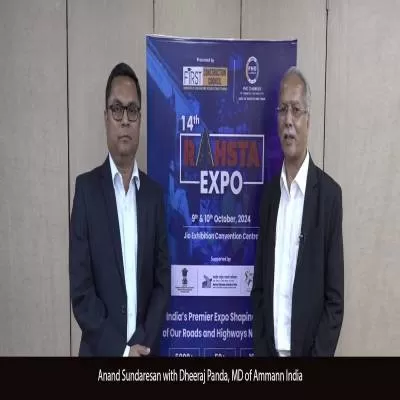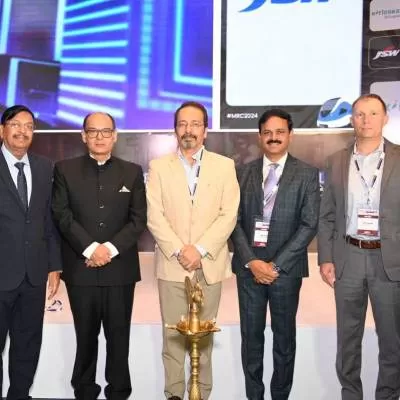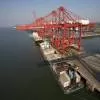- Home
- Real Estate
- Walking the talk
Walking the talk
Can anyone become a good leader? What is the role of a leader without a team? Do we require leadership skills in our managers? These are just some of the questions that come to mind when we talk about leadership. In a nutshell, the difference between a manager and a leader is that the former is 'transactional' while the latter is 'transformational'. Owing to target pressures, managers are often tough and project-oriented but this cannot be an excuse for remaining transactional. A good leader knows how to create resonant relationships, have concern for his team members, have shared visions and be capable of recognising opportunities and acting on them prudently.
Leadership misunderstood
Take the case of a construction company that had an excellent project manager who was able to deliver projects on time and maintain excellent cost saving ratios. Site engineers, quality executives, stores, etc, loved him for his ability to take responsibility for any issue on site. He never passed blame in the event of poor performance nor did he take any laurels for the performance of the team. He brought good work to the notice of the management. The attrition rate was very low. But strangely enough, the few that did leave cited the project manager as the reason in their exit interview. When one such person was interviewed, here's what he said:
- There was no freedom to express anything new, whether it was technology or application of materials.
- Quality was compromised in materials used.
- Construction checklists were not adhered to as it was understood that, if anything went wrong, the project manager had answers and could convince the management.
- Any communication from the second level of the hierarchy was screened before being sent to the management. Anyone who bypassed this would be labelled with conspiracy and forced to leave.
The management could not believe this until, one day, the project manager left for another organisation at a hefty salary, and crippled the company by moving his favourite team members with him. This shows how every part of the picture could appear good, but the picture as a whole was not good for the organisation in the long run.
Instead, every company needs a transformational leader who holds the organisation's goals - not his personal goals - as a shared vision. This leader must be able to transform every individual in his team by giving them an opportunity to perform and freedom to express their views; build trust and work together; and adapt to changing customer needs. Let us examine the essential qualities for transformational leadership through more case studies.
Integrity in managing more than one team
A marketing manager with good experience was recruited by a promoter to sell premium flats. He was introduced to a dedicated team of executives who were eager to deliver. He divided them into sub teams: a team of field executives to participate in home expos; another for direct e-sales; and another to bring in local commission agents and network members. There were clear roles and agendas but sales conversion was poor. Lack of performance was condoned and internal competitiveness created dissonant relationships.
The problem was a lack of emotional intelligence, failure to understand the working climate and culture of the existing team. Team management was poor and knowledge sharing within the team absent. Indeed, many managers choose divide and rule policy but this is unhealthy as conflicts eventually go out of hand, leading to non-cooperation and loss of team spirit. Organisations are not monolithic and require all departments to function optimally to complete the task. Thus, goals must resonate with every member of the organisation, irrespective of the team they belong to. Managers must create harmonious working relationships, share knowledge across teams and take responsibility, not only for the work but outcomes too.
Delegation of authority
Sharing of knowledge or delegation of authority is seldom practiced by leaders for fear of poor outcomes, losing credit or becoming redundant. But only when routines are delegated can a leader find time to seek information, look at opportunities and act.
In a construction company with several ongoing projects, the project head, keen to deliver the best, feared delegating responsibility to site engineers. This created unnecessary fear among the engineers who started depending on him for every decision, leading to inordinate delays. Eventually, with a time crunch, instructions were given to finish the tasks immediately, which led to compromises. The result: a blame game, the lack of a 'second line', no innovation or creativity, poor accountability and commitment among team members. Leaders must remember to offer the same opportunities to their team members that they were given by their mentors.
Be an agent of change
A leader must think strategically. Failure to recognise opportunities and act upon them can cripple an organisation in today's competitive environment. Some current challenges in the construction business include reconciling quality of construction with costs; maintaining high levels of safety; dealing with changing government policies and legal issues; getting on board with green building initiatives; and so on.
A good leader can adapt to the times by working with team members to create awareness about the expected benefits of change; train and provide them to make the change; and keep reinforcing the need for the change until results are achieved.
The final equation
For a leader to excel, the qualities discussed above must be woven in with proficiency in planning and control, time management, decision making, communication and motivation, team building, coordination and conflict management. Most important are adherence to ethics and appreciating good work. As they say, "A good leader never sets fire in the working environment for the team to perform but creates the fire within."
About the author
Nalina K Co-Director - Training and OD consultancy, Govind HRD is an expert on HR issues and related interventions for industries relating to manufacturing-engineering.
NALINA K tells us what it takes to be a transformational leader. Can anyone become a good leader? What is the role of a leader without a team? Do we require leadership skills in our managers? These are just some of the questions that come to mind when we talk about leadership. In a nutshell, the difference between a manager and a leader is that the former is 'transactional' while the latter is 'transformational'. Owing to target pressures, managers are often tough and project-oriented but this cannot be an excuse for remaining transactional. A good leader knows how to create resonant relationships, have concern for his team members, have shared visions and be capable of recognising opportunities and acting on them prudently. Leadership misunderstood Take the case of a construction company that had an excellent project manager who was able to deliver projects on time and maintain excellent cost saving ratios. Site engineers, quality executives, stores, etc, loved him for his ability to take responsibility for any issue on site. He never passed blame in the event of poor performance nor did he take any laurels for the performance of the team. He brought good work to the notice of the management. The attrition rate was very low. But strangely enough, the few that did leave cited the project manager as the reason in their exit interview. When one such person was interviewed, here's what he said: There was no freedom to express anything new, whether it was technology or application of materials. Quality was compromised in materials used. Construction checklists were not adhered to as it was understood that, if anything went wrong, the project manager had answers and could convince the management. Any communication from the second level of the hierarchy was screened before being sent to the management. Anyone who bypassed this would be labelled with conspiracy and forced to leave. The management could not believe this until, one day, the project manager left for another organisation at a hefty salary, and crippled the company by moving his favourite team members with him. This shows how every part of the picture could appear good, but the picture as a whole was not good for the organisation in the long run. Instead, every company needs a transformational leader who holds the organisation's goals - not his personal goals - as a shared vision. This leader must be able to transform every individual in his team by giving them an opportunity to perform and freedom to express their views; build trust and work together; and adapt to changing customer needs. Let us examine the essential qualities for transformational leadership through more case studies. Integrity in managing more than one team A marketing manager with good experience was recruited by a promoter to sell premium flats. He was introduced to a dedicated team of executives who were eager to deliver. He divided them into sub teams: a team of field executives to participate in home expos; another for direct e-sales; and another to bring in local commission agents and network members. There were clear roles and agendas but sales conversion was poor. Lack of performance was condoned and internal competitiveness created dissonant relationships. The problem was a lack of emotional intelligence, failure to understand the working climate and culture of the existing team. Team management was poor and knowledge sharing within the team absent. Indeed, many managers choose divide and rule policy but this is unhealthy as conflicts eventually go out of hand, leading to non-cooperation and loss of team spirit. Organisations are not monolithic and require all departments to function optimally to complete the task. Thus, goals must resonate with every member of the organisation, irrespective of the team they belong to. Managers must create harmonious working relationships, share knowledge across teams and take responsibility, not only for the work but outcomes too. Delegation of authority Sharing of knowledge or delegation of authority is seldom practiced by leaders for fear of poor outcomes, losing credit or becoming redundant. But only when routines are delegated can a leader find time to seek information, look at opportunities and act. In a construction company with several ongoing projects, the project head, keen to deliver the best, feared delegating responsibility to site engineers. This created unnecessary fear among the engineers who started depending on him for every decision, leading to inordinate delays. Eventually, with a time crunch, instructions were given to finish the tasks immediately, which led to compromises. The result: a blame game, the lack of a 'second line', no innovation or creativity, poor accountability and commitment among team members. Leaders must remember to offer the same opportunities to their team members that they were given by their mentors. Be an agent of change A leader must think strategically. Failure to recognise opportunities and act upon them can cripple an organisation in today's competitive environment. Some current challenges in the construction business include reconciling quality of construction with costs; maintaining high levels of safety; dealing with changing government policies and legal issues; getting on board with green building initiatives; and so on. A good leader can adapt to the times by working with team members to create awareness about the expected benefits of change; train and provide them to make the change; and keep reinforcing the need for the change until results are achieved. The final equation For a leader to excel, the qualities discussed above must be woven in with proficiency in planning and control, time management, decision making, communication and motivation, team building, coordination and conflict management. Most important are adherence to ethics and appreciating good work. As they say, "A good leader never sets fire in the working environment for the team to perform but creates the fire within." About the author Nalina K Co-Director - Training and OD consultancy, Govind HRD is an expert on HR issues and related interventions for industries relating to manufacturing-engineering.
























